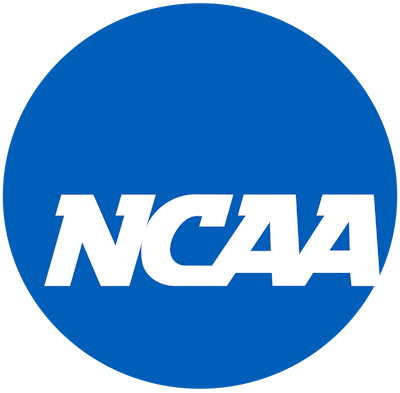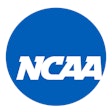
The NCAA continued its commitment to advancing mental health for its more than 520,000 student-athletes in the 2023-24 academic year. Check out a few ways the NCAA has made progress in this area, including new resources, initiatives and research.
Mental Health Best Practices
The second edition of NCAA Mental Health Best Practices was approved at the 2024 NCAA Convention in January and will go into effect Aug. 1. The document includes emerging information about the intersection of mental health and sports betting, social media, corruption in sport, suicide contagion, and name, image and likeness. The document also details specific considerations for student-athletes of color, LGBTQ student-athletes, international student-athletes and student-athletes with disabilities.
"The updated Mental Health Best Practices reflects the highest standards of excellence and evidence-based practice and of comprehensive and up-to-date guidance on supporting mental health in collegiate athletics," NCAA Chief Medical Officer Brian Hainline, who announced his retirement in March, said after a February meeting of the Committee on Competitive Safeguards and Medical Aspects of Sports. "The NCAA recognizes the importance of promoting and protecting the mental wellness of student-athletes, who face unique challenges and pressures in their pursuit of excellence."
The document's four best practices have been updated to recognize the importance of creating healthy environments as a first step in promoting mental health, as well as to provide membership increased flexibility in implementation. The best practices are:
- The creation of healthy environments that support mental health and promote well-being.
- Procedures, including mental health screening tools, for identifying student-athletes with mental health symptoms and disorders.
- Action plans that outline referral pathways of student-athletes to qualified providers.
- Licensure of providers who oversee and manage student-athlete mental health care.
Additionally, as part of Division I's holistic student-athlete model, schools in the division will be required to attest to providing services and support consistent with the best practices, with the first attestation deadline in November 2025. Under the NCAA constitution adopted in January 2022, each member school — regardless of division — must facilitate an environment that reinforces physical and mental health within athletics by ensuring access to appropriate resources and open engagement with respect to physical and mental health.
To support NCAA members in implementing mental health best practices, the NCAA Sport Science Institute recently hosted a series of webinars featuring membership-based examples of ways to support and promote student-athlete mental health.
Sports betting
Protecting student-athletes from the pitfalls of sports betting, ranging from addiction to harassment, quickly became a priority of NCAA President Charlie Baker after he started his role in March 2023. Since then, the NCAA's advocacy and efforts in this space have been impactful.
The national office is continuing to aggressively pursue advocacy in states that have or are considering legalized sports betting to incorporate antiharassment measures. This includes calling for a ban on player-specific prop bets. As a result, several states have taken positive steps to protect student-athletes from sports betting harassment. Four states have implemented restrictions on prop betting, and another four states have introduced bills that protect student-athletes from harassment.
The NCAA has expanded its educational efforts with EPIC Global Solutions, designing specific curriculum that discusses handling abusive content. Over 50,000 student-athletes have been educated through the program, the largest of its kind globally. The NCAA also has launched a sports betting e-learning module designed to educate current and prospective student-athletes on problem gambling harms and the risks sports betting poses to the integrity of sports.
The NCAA is also working with Signify Group to pilot an initiative targeting social media harassment for the 2023-24 championship season. The initiative focuses on select championships with a heightened risk for harassment and abuse directed at championship participants, particularly student-athletes. This initiative is intended to further promote the mental health and well-being of the college sports community through data collection and analytics.
In March, the NCAA launched a campaign called "Draw the Line," prioritizing student-athlete education on the effects of sports betting. Draw the Line is aimed at college students and will run across social media channels. It will include a membership toolkit for member schools and conferences to access resources that extend the campaign to their campuses.
"Sports betting is everywhere — especially on college campuses — so it's critical student-athletes get the real story about how it can impact them and their ability to play," Baker said. "We know some bettors are harassing student-athletes and officials, so that's why we are advocating for policy changes at the state level and launching monitoring tools around championships to refer serious threats to law enforcement. The NCAA is doing more than ever to protect the integrity of the game and arm student-athletes with the truth about sports betting."
Research
The NCAA has continued to get direct feedback from student-athletes on their experiences, especially on mental health concerns.
In December, the NCAA released results from a nationally representative survey of more than 23,000 student-athletes. The findings, drawn from the NCAA Student-Athlete Health and Wellness Study, indicated student-athletes are reporting fewer mental health concerns than they did during the height of the COVID-19 pandemic, although the improvements are smaller in some demographics.
Similar to findings from online studies conducted in 2020 and 2021, self-reported mental health struggles were more common among student-athletes of color, those identifying on the queer spectrum and those identifying as transgender or nonbinary — population subgroups that commonly display higher rates of mental distress.
"Getting an accurate understanding of what student-athletes are experiencing — directly from them — is vitally important to help member schools better serve the students on their campuses," said Tom Paskus, NCAA managing director of research. "The NCAA and our research partners, including NCAA faculty athletics representatives, devote substantial time and energy to conducting student-athlete well-being surveys because they allow us to examine important issues such as mental health trends over time. Having tens of thousands of respondents allows us to really dig deep into concerns we see in particular sports or within particular demographic groups."
In addition to sharing findings from the Health and Wellness Study, the NCAA Wagering and Social Environments Study is currently in the field, and the NCAA research team anticipates sharing preliminary results early this fall. The study represents the first comprehensive national examination of how NCAA student-athletes are being impacted by the proliferation of legal sports wagering options in the U.S. after the Supreme Court's 2018 overturning of the Professional and Amateur Sports Protection Act of 1992. Additionally, the survey examines how student-athletes interact with campus and community groups and deal with various issues that arise in their social environment. The study will expand the NCAA's understanding of the sports betting landscape and its direct impact on student-athletes, including whether rates of problem gambling behaviors in this population have changed as sports betting has become legal in many states, whether student-athletes are experiencing fan abuse related to sports betting, and how social media use is impacting student-athlete mental wellness.
Post-eligibility insurance — mental health coverage
In August 2023, the NCAA Board of Governors approved the creation of the NCAA Post-Eligibility Insurance Program for all student-athletes, which will begin Aug. 1. For up to two years (104 weeks) after student-athletes separate from school or voluntarily withdraw from athletics, the program will cover excess medical expenses for athletically related injuries sustained on or after Aug. 1 during participation in an NCAA qualifying intercollegiate sport. The coverage will provide benefits in excess of any other valid and collectible insurance. The policy will have a $90,000 excess limit per injury, with no deductible.
The program includes coverage for mental health services stemming from an eligible, documented athletic injury sustained during participation in an NCAA qualifying intercollegiate sport. Of the $90,000 available, a sublimit of up to $25,000 will be available for mental health services related to an eligible, documented athletic injury.
































